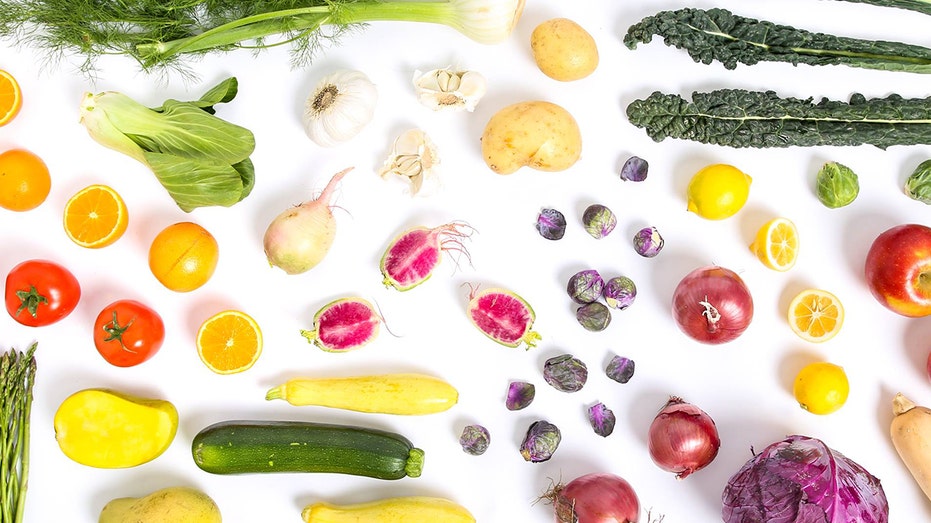Imperfect Foods, others sell produce for less, cut down on waste
Mistfit Market and Imperfect Foods sell 'ugly' produce at a lower cost to reduce waste
It’s a ripe time to buy produce online.
With grocery stores selling out of fresh produce as consumers stock up on food during the ongoing coronavirus outbreak, online food delivery services that sell foods that would have otherwise gone to waste are becoming a more viable option.

Imperfect Foods sells "ugly" produce that would have otherwise been thrown away for 30 percent less than the retail price at grocery stores. (Imperfect Foods).
Startups that sell fruits and vegetables like crooked carrots, skinny cucumbers and oversized apples combat nearly 40 percent of total food waste that occurs when grocers turn down foods that don’t meet their strict cosmetic standards.
DO'S AND DON'TS OF CORONAVIRUS STOCKPILING: 5 MUST-HAVE ITEMS
Imperfect Foods, a San Francisco-based business, sources produce directly from farmers and delivers the “ugly” fruits and veggies for up to 30 percent less than grocery store retail prices.
To order the fruits and veggies, customers simply enter their ZIP code to see if the produce is available in their neighborhood. Then they order a box as they would any meal kit with the smallest box starting at 9 pounds for fruits and veggies between $11 and $13 with an extra-large box feeding up to 10 people with 25 pounds of produce for $27. The service, which launched in 2015, is available in Chicago; Portland, Oregon; Seattle; Austin and across the Northeast.
WHAT IS THE AVERAGE GROCERY BILL FOR ONE PERSON?
Another subscription food box service, Misfits Market, works with growers to offer consumers up to 40 percent off grocery store prices. For $22, subscribers can get up to 13 pounds of organic fruits and vegetables delivered each week. Everything is organic and non-GMO.
And the financial burden of food waste amounts to $218 billion, according to the same report. The average American household wastes $2,200 worth of food per year, according to the Natural Resources Defense Council (NDRC).
CLICK HERE TO READ MORE ON FOX BUSINESS





















